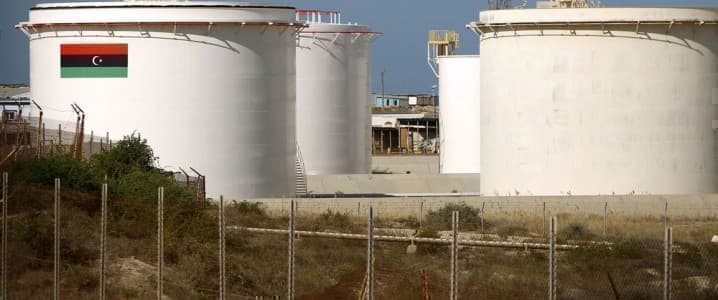OPEC turns 60 years today, but the celebration has been postponed in the light of the ongoing pandemic.
The combination of demand destruction caused by COVID-19, a struggling global economy, and fleeting energy demand is troubling the oil price recovery. At the same time, OPEC members such as Iraq, Iran, Venezuela, and even Algeria and Nigeria, are facing economic hardships due to much lower oil revenues.
On the supply side, some relief for the cartel has come from internal conflicts in Iraq and Venezuela, which have reduced exports, and U.S. sanctions on Iran, which have significantly reduced the nation’s capacity to export crude oil and oil products. No real change is to be expected in these countries any time soon, but things could, however, be changing quickly for OPEC member Libya.
The North African oil producer has seen its exports collapse as a result of the ongoing military conflict between the Tripoli-based GNA government, backed by the UN and Turkey, and East-Libyan power broker General Haftar, whose military forces are backed by the UAE, Russia, and several other Arab and European countries. Years of military confrontation have not only brought Libya’s oil and gas sector to a standstill but has also led to a Haftar-backed oil export blockade. While OPEC will not openly state it, the removal of Libyan oil from the global marketplace has made things a lot easier for the cartel. The export blockade, however, may not last much longer if U.S.-backed sources are correct. According to the U.S. embassy in Tripoli, Libya’s General Haftar has committed to lifting the oil blockade by the 12th of September.
The U.S. embassy stated that the “U.S. Embassy is encouraged by an apparent sovereign Libyan agreement to enable the National Oil Corporation (NOC) to resume its vital and apolitical work’’.
In an exchange of letters between Ambassador Norland and Libyan National Army (LNA) commander Haftar, as well as in recent discussions with a broad range of Libyan leaders, the Ambassador underscored U.S. confidence in the NOC and support §a financial model that would constitute a credible guarantee that ‘’oil and gas revenues would be managed transparently and preserved for the benefit of the Libyan people.”
In the same press release, it was said that “the LNA subsequently conveyed to the U.S. government the personal commitment of General Haftar to allow the full reopening of the energy sector no later than September 12.”
Related: Big Tech Still Loves The Oil Business
The U.S. and all parties involved seem to have reached an agreement that there will be safeguards to enable all Libyans to have confidence that revenues are not misappropriated. The press release also mentioned that the re-opening of the oil and gas sector is expected to enable progress toward a much-needed overhaul of security arrangements for NOC facilities, including the full withdrawal of foreign military personnel and equipment present at oil and gas sites without Libyan approval and a Libyan agreement to reform the Petroleum Facilities Guard and break the cycle of predation by certain armed groups.
This news seems to be very positive, but the agreement doesn’t necessarily mean that the skirmishing parties will actually respect it. Current assessments are not very optimistic, looking at the important role of third-party military groups in the conflict on both sides. Turkish, Emirati, and Russian backed groups will potentially attempt to take advantage of the situation in an attempt to take control of strategic positions.
At the same time, LNA military leader Haftar will have to cope with an unexpected political situation in his own area. The official eastern Libyan government, backing Haftar, has submitted its resignation after a number of protests over deteriorating living conditions and corruption. In the last few days, Benghazi protests have been targeting the government's headquarters. The demonstrations also resulted in some direct clashes with security forces in General Haftar's stronghold of al-Marj for the first time. Haftar’s sources claimed that the administration backed peaceful protests but would not allow "terrorists and the Muslim Brotherhood" to hijack them. The resignation of the eastern government is a blow to Haftar, but the situation on the ground is unclear, as the parliament in Tobruk needs to approve the resignation of the government. The current protests against Haftar in the east follow weeks of major protests in the west against the GNA government in Tripoli.
The ongoing destabilization of Libya and the oil export blockade has cost not only billions of dollars in revenues since January 2020 but has also resulted in numerous blackouts. It now seems that a growing number of Libayns are fed up with both sides, confronted by economic despair and conflict.
The growing unrest doesn’t bode well for stability in both parts of the country. A destabilized GNA and LNA power position could not only cause a rebellion on both sides but also result in increased Turkish or Russian-Egyptian/UAE interference. If the rumored deal is actually implemented, however, OPEC+ will find it much harder to rebalance the markets, as a possible, 1.2 million bpd (now out of the market) in export volumes could soon be resumed. Looking at current demand-supply forecasts, crude prices will be affected for sure. A peaceful solution or stability pact may be good news for Libya but could ruin OPEC’s efforts to balance a COVID-stricken oil market.
By Cyril Widdershoven for Oilprice.com
More Top Reads From Oilprice.com:
- Natural Gas Industry Sees Support From U.S. Voters
- Will Trump Bail Out Struggling Refiners?
- Where Is Future Oil Demand Going To Come From?

















